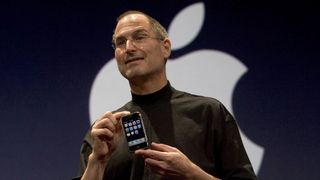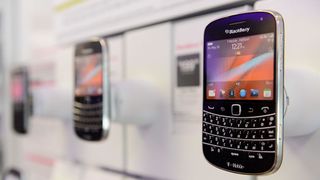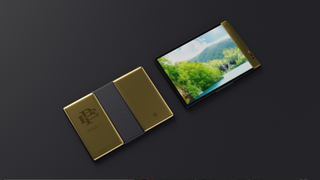The iPhone at 15: It’s still hard to see what comes next
The smartphone is so central to modern life that it might very well be future-proof

“Every once in a while, a revolutionary product comes along that changes everything,” Steve Jobs remarked at the launch of the first iPhone. “You’re lucky if you get to work on one of these in your career.”
Tragically, the iPhone turned out to be the last disruptor the late Jobs would work on, and, such is the brilliance of that invention, it might never be bested. Sunday 9 January marked the 15th anniversary of that historic reveal. In that time, there have been more than 30 different models and variations of Apple’s iconic handset. Alongside rival Android variants, the smartphone has gone on to become such a central part of modern life that it’s hard to see what comes next.
I’ve been mulling this over since Blackberry announced last week its QWERTY-keyboard phones will no longer be usable. When Apple launched the iPhone in 2007, and for the subsequent two years, most of us couldn’t see a world without the BlackBerry. It took us from the dark days of the beeper into the realm of sending emails away from our desks. It was oddly addictive, giving us the ailment known as ‘crackberry’, but by the middle of the next decade the world had moved on to a new tech drug: Touchscreens.

From 4 January, classic Blackberry devices were permanently discontinued
Now, in essence, the modern-day smartphone is a potent combination of multiple innovations – internet, software, mini-displays – and its success is tied to the convenience of having them all to hand, 24/7. It’s the reason for the very existence of certain industries, many of which can be found via an app ecosystem. Other technologies are built around smartphones; IoT devices, by and large, are linked to a central smartphone. The healthtech scene is about data collected through wearables – almost all of which need a parent phone to work. We also capture every moment through integrated camera systems and share them on social media, mostly via mobile. Hell, I can’t even log into my work laptop without first confirming who I am with my phone. They’re the keys to virtually everything.
We couldn’t do much of that on a BlackBerry. Jobs put it quite well in his iPhone presentation when he said ‘smartphones’ were not easy to use at that point. Part of the problem was that physical keyboards took up 40% of the screen and that extra space has turned out to be of high value for the future. Content is now king and companies such as YouTube and Netflix owe part of their success to the smartphone.
It’s so embedded in our lives and that it ultimately means that whatever usurps the smartphone will need to have most of the same qualities. Touchscreens will likely still be the key; we already have foldable phones, which are still smartphones, funnily enough. There might be some futurists out there developing screens that you can operate without touch, but what form does their invention take? I would hazard a guess that it's still smartphone shaped.
Get the ITPro. daily newsletter
Receive our latest news, industry updates, featured resources and more. Sign up today to receive our FREE report on AI cyber crime & security - newly updated for 2024.

Smartphone innovation has given rise to a series of foldable devices, including the Esobar Fold 1 (pictured)
Such is their prominent role in society, it raises another possibility in the evolution of the smartphone: it may actually reverse. There are reports that younger generations are opting for so-called ‘dumb’ featureless phones because they fear burnout and other mental health issues from living with devices that have constant access to everything. Arguably, this is a reason why iPhones and other smartphones now come with apps and settings to manage screen time.
In 2022, 15 years on after the first iPhone, we’re onto the iPhone 13, and the success of this series has partly helped Apple to become the first company to surpass the £3 trillion market cap. What’s more, we’re not even sure that’s peaked yet.
Bobby Hellard is ITPro's Reviews Editor and has worked on CloudPro and ChannelPro since 2018. In his time at ITPro, Bobby has covered stories for all the major technology companies, such as Apple, Microsoft, Amazon and Facebook, and regularly attends industry-leading events such as AWS Re:Invent and Google Cloud Next.
Bobby mainly covers hardware reviews, but you will also recognize him as the face of many of our video reviews of laptops and smartphones.





